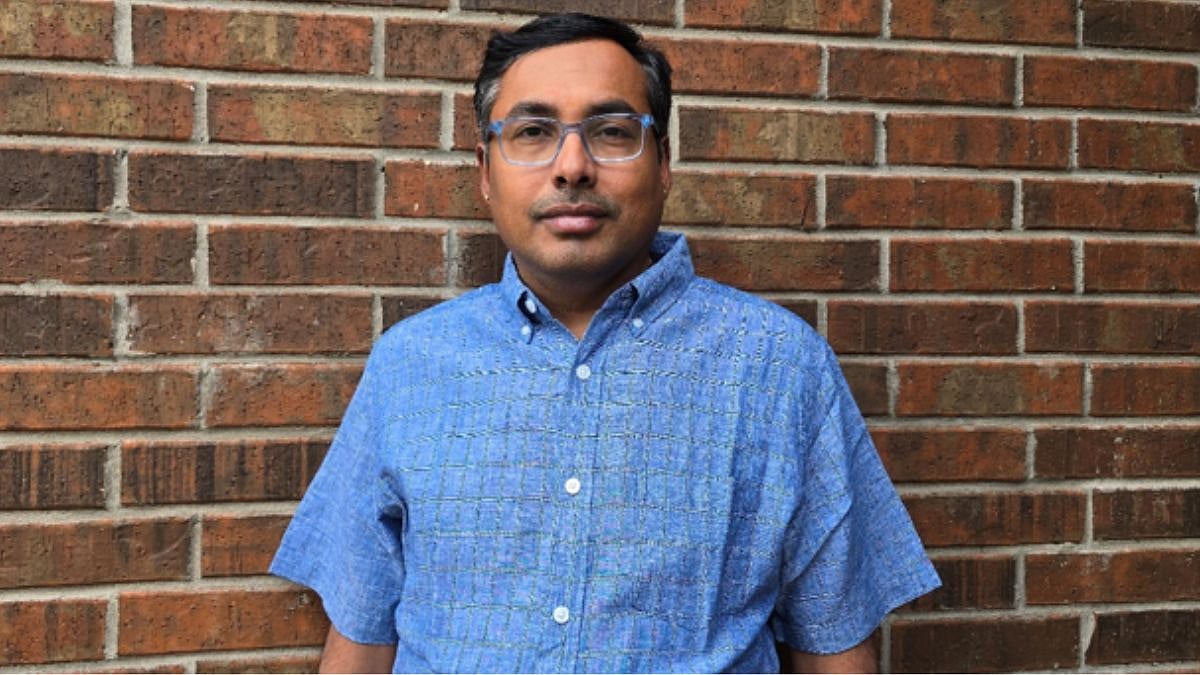Solving The Energy Crisis: How Ashok Kumar Kalyanam Is Using IoT To Transform Energy Consumption In Real Estate
Almost 40% of world energy consumption is attributed to the real estate industry, with great significance into global greenhouse gas emissions. Commercial buildings, in particular, present much difficulty due to outdated infrastructure, inefficient energy systems, and lack of real-time data visibility.

Ashok Kumar Kalyanam | File Photo
Almost 40% of world energy consumption is attributed to the real estate industry, with great significance into global greenhouse gas emissions. Commercial buildings, in particular, present much difficulty due to outdated infrastructure, inefficient energy systems, and lack of real-time data visibility.
As cities extend and climate concerns gain traction, there is increased pressure on real estate developers and facility managers to come up with smarter, greener practices.
This is where Internet of Things (IoT) technologies have emerged as a game-changer—enabling buildings to become intelligent ecosystems that monitor, analyze, and optimize energy usage in real-time.
By embedding sensors, automating HVAC and lighting systems, and using data-driven insights to guide operational decisions, IoT is helping the industry reduce waste, lower costs, and meet sustainability targets.
Leading this movement Ashok Kumar Kalyanam, a visionary technologist whose work has been instrumental in translating IoT’s potential into practical, scalable solutions for energy-efficient real estate management. His journey has been marked by leadership roles in large-scale smart building projects and collaborations with leading industry platforms and consortiums focused on sustainable infrastructure.
His impact within his organization has been transformative. By implementing IoT-based energy monitoring and predictive analytics systems across multiple commercial buildings, He has led initiatives that resulted in measurable benefits.
These include a 15–25% reduction in energy consumption within a year, cost savings exceeding $2.5 million annually through automated demand response and HVAC optimization, and a 30% increase in operational efficiency by integrating real-time alerts and AI-driven controls.
His work has also significantly reduced the organization’s carbon footprint, aligning closely with its ESG goals and sustainability commitments.
Among his most impactful projects are the development of smart grid integrations for commercial complexes that enable automated load balancing and dynamic pricing adjustments, the creation of a centralized analytics dashboard for real-time energy usage insights across more than a hundred buildings, and a successful upgrade of traditional Building Management Systems by integrating IoT sensors for fault detection and automation. These initiatives have transformed his organization into a model for smart energy practices within the real estate industry.
This expert contributions are also evident in countable performance metrics. His work has helped reduce peak load demand by 18% in targeted buildings, optimized HVAC usage to achieve a 22% decrease in daily runtime, improved tenant comfort scores by 40% through smart temperature zoning, and decreased maintenance costs by 35% using sensor-based predictive diagnostics.
One of the significant challenges he overcame was integrating fragmented legacy systems with modern IoT platforms without disrupting day-to-day operations. To address this, he introduced a hybrid middleware solution that enabled seamless interoperability and data flow.
Another key challenge was obtaining stakeholder buy-in for large-scale IoT implementation. Ashok successfully addressed this through pilot programs that clearly demonstrated return on investment and environmental benefits, which ultimately led to enterprise-wide adoption.
Interestingly this expert has also contributed thought leadership to the field through various publications and engagements. He authored a white paper titled “Smart Energy Management Using IoT in Real Estate,” presented at the Green Tech Summit.
He has also written guest blogs for industry platforms such as IoT Now and Smart Cities Dive, and participated in panel discussions on ESG and IoT for urban sustainability.
Typically he's convinced with this long experience that the future of energy optimization in real estate is in creating AI-based IoT orchestration with a digital twin model to connect buildings into a blockchain-based trading system. Open interoperability standards, privacy-sensitive metering infrastructure, and microgrid integrations-all enable IoT to perform in addressing the energy crisis.
As Ashok explains, “The convergence of IoT, AI, and sustainability practices is more than a technological shift; it is a societal imperative. Our buildings have to become as smart as our devices.” Ashok Kumar Kalyanam innovates, foresees strategically, and zealously enhances efficiency to not only adapt to tomorrow's energy challenges but to also solve them today.
Published on: Thursday, September 11, 2025, 08:05 AM ISTRECENT STORIES
-
-
-
-
-
